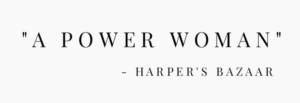I have a confession to make: I am a people pleaser. I always have been. I was that kid in school who always got gold stars and straight-As. I was that annoying smarty-pants who would jump up and down in my chair with my hand thrust into the air to answer any question. I loved being the “teacher’s pet” (and I was really good at it!), and that chronic-pleaser-syndrome has never gone away. (I think women suffer from people-pleasing more than men do, as we are socially and culturally encouraged to be accommodating and obliging – and sometimes called horrible names when we aren’t — but that’s a topic for another day!).
Years ago when I was starting a business of my own, it felt like I never had enough hours in a day for myself, my health, my business, or my loved ones but somehow I still kept saying yes to requests and asks from other people, often total strangers. What was going on?
I can’t pinpoint exactly when it was, but I remember there finally coming a time when I read somewhere (I think it was Heather McGregor who writes the Mrs Moneypenny column in the FT) that it wasn’t just okay to say no, it was essential. And that if something didn’t directly support my personal or professional goals, then I should say no to it.
It was like an epiphany. I suddenly felt the burden of my savior-syndrome start to lift. Of course I couldn’t help everyone. No one can. We all have real constraints on our time and energy and need to be careful about how we invest that time and energy. The big and small things we say yes and no to have a very measurable impact on our lives and our success. Subtraction is often more important than addition.
Saying no wasn’t easy at first (and I still struggle with it now sometimes). Saying no to people who asked for help made me feel like a jerk. But as one of my favorite business writers Denise Duffield-Thomas says, we can give how, and however often, makes sense for us AND our businesses and create boundaries around that giving.
I love that. Saying no isn’t being mean or selfish, it’s being realistic about the limits to how much I can and should give, and defining my “no’s” and my giving clearly. So I’ve built generous giving into my business model: I do lots of free articles, You Tube videos, podcasts, webinars, and speaking engagements so I can help lots of people at the same time, and I do a set number of pro-bono hours to help a few budding entrepreneurs each year. And then, the rest of my time is devoted to private clients and our Members who I can help in a very targeted and tailored way.
After years of giving indiscriminately, I designed boundaries into my business. I had to think hard about how I could say no but still help as many people as possible (there’s that chronic-helper-syndrome again!) and help in a way that felt sustainable and generous instead of leaving me feeling vulnerable and exploited.
But it took time, and thought, and some uncomfortable conversations for me to get (a little more) comfortable saying no, and now I am having a far greater impact on a far greater number of people. So in reality, saying no has allowed me to help more people and be more focused. Win-win.
So what can you say no to? What boundaries can you establish so you can say no to some things and yes to others? What amount of no-saying is right for you AND your business?
Warren Buffet didn’t become hugely successful by investing in every business brought to him. He says no as a rule, and sparingly uses his yes’s. (A great illustration of this is his “20-Punchcard Rule”… you can decide what your 20 punches will be in your business, in your personal life, in your health, etc, and say no to everything else.)
Now I can’t promise that by saying no you’ll become the next Warren Buffet, but I CAN guarantee that when you get better at setting boundaries and saying no, you and your business will become more focused and disciplined, and focus and discipline are two of the key ingredients of success.
So the next time you feel yourself tempted to say yes to something, take a minute and ask yourself if you should just say no instead.


